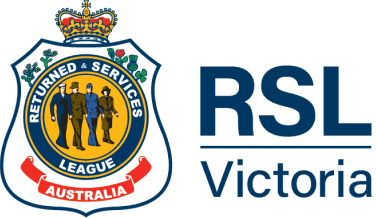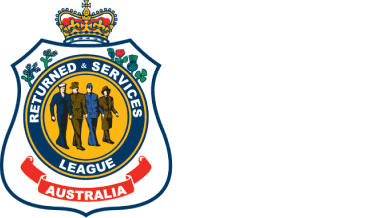Photography: Tim Collins
As Kris Stocker meanders through the streets of her town, it’s hard to ignore the devastation that struck half a year ago.
“Every day there’s another skip bin out the front of a house, or there’s another house under repair, there are people dotted around the place living in caravans, lots of people have left the town to live with friends of family. We’re still recovering. There’s been a lot of work done, but it’s still a long road.”
The 46-year-old mother of two and now Secretary of Rochester RSL describes her family as one of the very lucky few, with their house still habitable.
"There’s only a few of us that had minor or no damage to our homes. It all depended which way the water was coming and which way it was rushing"
Kris Stocker
As heavy rainfall and storms traversed the east coast of Australia and led to one of the most devastating flooding events in the state’s history, incredible scenes and stories of strength and resilience continue to unfold, with locals and those in neighbouring suburbs rallying together.
According to the State Emergency Service, from 12 October to 30 October there were over 16,000 requests for assistance around the state, at least 370 emergency warnings issues and over a million sandbags laid across parts of Victoria.
Life-long residents of Rochester have endured floods before, with the 2011 flood swallowing 80 per cent of the town.
But the consensus is they’ve never experienced anything like the flooding event of 2022, when the town of about 3000 received the full force of the Campaspe River.
Cameron Lovering has lived in Rochester for just over two years.
“People were like, ‘This is different, this is going to be very different to 2011.’”
The 38-year-old is not only a husband, a father to three young children, but is also the Rochester RSL Sub-Branch President, Captain of the Rochester Salvation Army and a volunteer with the Country Fire Authority.
He is one of those people you want around in times of need, drawing on his skills and network to rescue and save as many people as possible.
"It’s just the way things are done in the country. It’s that whole sense of service and that call to duty – we will do whatever we can."
Cameron Lovering
With an unquenchable desire to join the military, Cameron enlisted in the Army in 2009. He served full-time until 2016 when he transferred to the Reserves, where he still serves a Mechanic with the 4th Combat Service Support Battalion.
Days before the Campaspe River broke its banks, word on the street was that water levels would continue to rise. With an inkling it would be a catastrophic event, Cameron and a small team from the Rochester RSL started sandbagging, working in cold and rainy conditions.
“We did not stop until that flood event hit peak, so it was pretty much four days of constant work and little sleep, late nights and thousands and thousands of sandbags.”
That’s what Cameron termed the “battle prep phase.” Drawing upon their military training, the group prepared to defend their town and community as best as they could.
“We were doing welfare checks on our members, and we created a live tracking map of where members were living in proximity to the flood and prioritised those for sandbagging and moving out of their homes.”
As the days progressed and the severity of the flood was realised, Cameron made plans to evacuate his own family to focus on tasks at hand.
“We could see how quickly the water was coming in. I was in my fire brigade uniform actively patrolling because there were already a number of houses inundated.”
Luckily, Cameron has had basic training in water rescues.
"We quickly went from being firefighters to rescuing people from moving floodwater... from neck-high, to the point where you couldn’t stand up, to very fast flowing sort of knee-high water."
Cameron Lovering
He remembers a particular rescue mission involving a distressed veteran.
“The caller essentially said ‘We’re trapped, we’re in Huntly and we can’t come back to Rochester, we’re cut off, and we can’t get to Bendigo and there’s only one hotel in town. We’ve got all our kids and all our animals, and they won’t take us in.’”
Despite feeling quite helpless himself, Cameron swung into action. A few phone calls later, assisted by the Bendigo RSL Sub-Branch, the family was able to be evacuated to emergency accommodation.
“That was just one incredible story of assistance from a neighbouring RSL.”
And they just keep coming.
"We can’t commend Elmore, Bendigo and Hawthorn RSL Sub-Branches enough. I’ve lost count of other Sub-Branches that have made financial contributions or volunteered to help. We are really humbled by the neighbouring RSLs that have rallied around us."
Cameron Lovering
Within days of the flood, a team from RSL Victoria’s Veterans Services Department, including a social worker, deployed to Rochester to work with local veterans and triage their needs.
While other local veterans have since become known to the RSL, of the 45 Sub-Branch members who live in Rochester, 43 of them were affected by the flood to varying degrees. The worst of them uninsured, homeless and now facing an uncertain future.
The team determined it was important to keep things as normal as possible, especially for children. Keeping kids connected and enabling them to attend online classes was made a priority, as was keeping the elderly in touch with loved ones and support networks.
RSL Victoria arranged for home repairs, replacement iPads, phones and provided thousands of dollars’ worth of other necessities.
With people having to reprioritise their finances due to job losses and various other unexpected flood costs, RSL Victoria also prioritised food vouchers.
Cameron says some veterans have expressed that this disaster has brought back memories of their wartime service and episodes of distress.
“They [RSL Victoria Veteran Services] also sat down with people whilst they cried, they’ve supported them mentally and emotionally, they’ve hugged them and held them.”
The RSL Victoria team also linked flood victims to other support services, including mental health organisations, and assisted with doctor’s appointments.
There is ongoing dialogue between the Rochester RSL Sub-Branch and RSL Victoria to continually assess the evolving and ongoing needs of the Rochester veteran community.
"What we are seeing now is a change in need, from the initial emergency response and welfare need to a more long-term need."
Cameron Lovering
As for the Sub-Branch itself, what the eye can see doesn’t reveal the truth behind its closed doors. While the gardens of the Rochester RSL look, as Cameron describes, amazing, the building was flooded and now sits an empty shell. Some original, century-old fittings in the building are unsalvageable.
“It’s uninhabitable. There’s perforated asbestos in the building, the floorboards are damaged. The ADF came and helped to strip out the hall whilst we were committed elsewhere. The hall had to be gutted and we’re waiting for an insurance assessment and quotes for repairs to come back.”
Thankfully, as part of the flood preparation, the historical collection was able to be saved and is undamaged.
"We are immensely proud of our membership, including a few of our own members that were heavily involved in emergency services, rescues, recovery and rehabilitation of the town. One of our members took in and housed an unknown number of people, basically turned his house into emergency accommodation."
Cameron Lovering
Kris says both the local RSL and the RSL more broadly have been an invaluable resource.
“I don’t know what would have happened to our veterans and their families. The Victorian RSL network’s knowledge on how to get support for veterans and get them help has been paramount.”
With a degree of disbelief at what the past few months have thrown at his new hometown of Rochester and its beloved community, Cameron remains passionate and optimistic.
“The Rochester RSL Sub-Branch needs your support now more than ever.”
"We still have members in need. It’s critical the Rochester RSL Sub-Branch continues its mission of commemoration, camaraderie, and veteran welfare. Our community needs us up and running to continue supporting the veterans, families and affiliates."
Cameron Lovering
A Note from RSL Victoria
RSL Victoria’s Veteran Central is a service for Victorian veterans to interact with Ex-Service Organisations and get the support they need to maintain their wellbeing. Our 1300 MILVET (1300 645 838) number is staffed by Navigators who will work directly with you to find and link you to supports that are available. This might be within RSL programs, our Ex-Service Organisation community in Australia, or help navigating the DVA system or Commonwealth aged care system.
Services and staff are located across Victoria and often in person support is also available to many veterans and their families.

